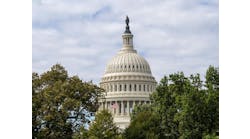The Federal Trade Commission will launch an inquiry into pharmacy benefit managers’ role at the center of the U.S. pharmaceutical system.
Pharmacy benefit managers are hired to negotiate rebates and fees with drug manufacturers, create drug formularies and surrounding policies, and reimburse pharmacies for patients’ prescriptions. The largest pharmacy benefits managers are now vertically integrated with the largest health insurance companies and wholly owned mail order and specialty pharmacies.
In these roles, pharmacy benefit managers often have enormous influence on which drugs are prescribed to patients, which pharmacies patients can use, and how much patients ultimately pay at the pharmacy counter. Many of these functions depend on highly complicated, opaque contractual relationships that are difficult or impossible to understand for patients and independent businesses across the prescription drug system.
The FTC will require the six largest pharmacy benefit managers to provide information and records regarding their business practices. The agency’s inquiry will scrutinize the impact of vertically integrated pharmacy benefit managers on the access and affordability of prescription drugs.
As part of this inquiry, the FTC will send compulsory orders to CVS Caremark; Express Scripts Inc.; OptumRx Inc.; Humana Inc.; Prime Therapeutics LLC; and MedImpact Healthcare Systems Inc.
After the commission split 2-2 in February on a proposal to launch a formal study into PBMs, FTC Chair Lina Khan pledged to call for another vote on the issue. Today’s 5-0 vote comes after Alvaro Bedoya was sworn in as commissioner in May.
“Although many people have never heard of pharmacy benefit managers, these powerful middlemen have enormous influence over the U.S. prescription drug system,” said Khan, in a statement. “This study will shine a light on these companies’ practices and their impact on pharmacies, payers, doctors, and patients.”
The inquiry is aimed at shedding light on several practices that have drawn scrutiny in recent years including:
• Fees and clawbacks charged to unaffiliated pharmacies;
• Methods to steer patients towards pharmacy benefit manager-owned pharmacies;
• Potentially unfair audits of independent pharmacies;
• Complicated and opaque methods to determine pharmacy reimbursement;
• The prevalence of prior authorizations and other administrative restrictions;
• The use of specialty drug lists and surrounding specialty drug policies;
• The impact of rebates and fees from drug manufacturers on formulary design and the costs of prescription drugs to payers and patients.
The National Community Pharmacists Association applauded the FTC's decision to launch the investigation. “PBMs behave like monopolies. Their secretive, anticompetitive practices increase prescription drug prices, limit consumer choice, and stymie competition. They’ve escaped serious scrutiny for far too long, but this study will bring their dirty laundry out into the open,” said NCPA CEO B. Douglas Hoey, pharmacist, M.B.A., in a statement. “NCPA has repeatedly called on the FTC to scrutinize PBM practices, and thousands of community pharmacy owners and their allies have shared with the FTC their examples of the impact health insurer-owned PBMs have on consumer costs and access to prescription drugs contributing to the FTC decision to do the 6(b) study.” He added that he hoped the study would result in meaningful reforms to merger and acquisition reviews and to the insurer-PBMs themselves.
The FTC’s inquiry will build on the significant public record developed in response to the request for information about pharmacy benefits managers that the agency launched on Feb. 24, 2022. The agency has received more than 24,000 public comments to date.
The FTC is issuing the orders under Section 6(b) of the FTC Act, which authorizes the Commission to conduct studies without a specific law enforcement purpose. The companies will have 90 days from the date they receive the order to respond.


